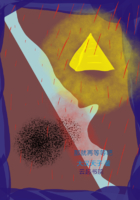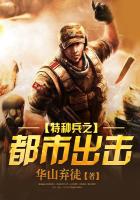"Senator Stanton," he began timidly, "might I speak to you a moment? My name is Arkwright; I am just back from Cuba, and I want to thank you for your speech. I am an American, and Ithank God that I am since you are too, sir. No one has said anything since the war began that compares with what you said to-night. You put it nobly, and I know, for I've been there for three years, only I can't make other people understand it, and Iam thankful that some one can. You'll forgive my stopping you, sir, but I wanted to thank you. I feel it very much."Senator Stanton's friends had already seated themselves in his carriage and were looking out of the door and smiling with mock patience. But the senator made no move to follow them. Though they were his admirers they were sometimes skeptical, and he was not sorry that they should hear this uninvited tribute. So he made a pretence of buttoning his long coat about him, and nodded encouragingly to Arkwright to continue. "I'm glad you liked it, sir," he said with the pleasant, gracious smile that had won him a friend wherever it had won him a vote. "It is very satisfactory to know from one who is well informed on the subject that what I have said is correct. The situation there is truly terrible. You have just returned, you say? Where were you--in Havana?""No, in the other provinces, sir," Arkwright answered. "I have been all over the island, I am a civil engineer. The truth has not been half told about Cuba, I assure you, sir. It is massacre there, not war. It is partly so through ignorance, but nevertheless it is massacre. And what makes it worse is, that it is the massacre of the innocents. That is what I liked best of what you said in that great speech, the part about the women and children."He reached out his hands detainingly, and then drew back as though in apology for having already kept the great man so long waiting in the cold. "I wish I could tell you some of the terrible things I have seen," he began again, eagerly as Stanton made no movement to depart. "They are much worse than those you instanced to-night, and you could make so much better use of them than any one else. I have seen starving women nursing dead babies, and sometimes starving babies sucking their dead mother's breasts; I have seen men cut down in the open roads and while digging in the fields--and two hundred women imprisoned in one room without food and eaten with small-pox, and huts burned while the people in them slept--"The young man had been speaking impetuously, but he stopped as suddenly, for the senator was not listening to him. He had lowered his eyes and was looking with a glance of mingled fascination and disgust at Arkwright's hands. In his earnestness the young man had stretched them out, and as they showed behind the line of his ragged sleeves the others could see, even in the blurred light and falling snow, that the wrists of each hand were gashed and cut in dark-brown lines like the skin of a mulatto, and in places were a raw red, where the fresh skin had but just closed over. The young man paused and stood shivering, still holding his hands out rigidly before him.
The senator raised his eyes slowly and drew away.
"What is that?" he said in a low voice, pointing with a gloved finger at the black lines on the wrists.
A sergeant in the group of policemen who had closed around the speakers answered him promptly from his profound fund of professional knowledge.
"That's handcuffs, senator," he said importantly, and glanced at Stanton as though to signify that at a word from him he would take this suspicious character into custody. The young man pulled the frayed cuffs of his shirt over his wrists and tucked his hands, which the cold had frozen into an ashy blue, under his armpits to warm them.
"No, they don't use handcuffs in the field," he said in the same low, eager tone; "they use ropes and leather thongs; they fastened me behind a horse and when he stumbled going down the trail it jerked me forward and the cords would tighten and tear the flesh. But they have had a long time to heal now. I have been eight months in prison."The young men at the carriage window had ceased smiling and were listening intently. One of them stepped out and stood beside the carriage door looking down at the shivering figure before him with a close and curious scrutiny.
"Eight months in prison!" echoed the police sergeant with a note of triumph; "what did I tell you?""Hold your tongue!" said the young man at the carriage door.
There was silence for a moment, while the men looked at the senator, as though waiting for him to speak.
"Where were you in prison, Mr. Arkwright?" he asked.
"First in the calaboose at Santa Clara for two months, and then in Cabanas. The Cubans who were taken when I was, were shot by the fusillade on different days during this last month. Two of them, the Ezetas, were father and son, and the Volunteer band played all the time the execution was going on, so that the other prisoners might not hear them cry 'Cuba Libre' when the order came to fire. But we heard them."The senator shivered slightly and pulled his fur collar up farther around his face. "I'd like to talk with you," he said, "if you have nothing to do to-morrow. I'd like to go into this thing thoroughly. Congress must be made to take some action."The young man clasped his hands eagerly. "Ah, Mr. Stanton, if you would," he cried, "if you would only give me an hour! Icould tell you so much that you could use. And you can believe what I say, sir--it is not necessary to lie--God knows the truth is bad enough. I can give you names and dates for everything Isay. Or I can do better than that, sir. I can take you there yourself--in three months I can show you all you need to see, without danger to you in any way. And they would not know me, now that I have grown a beard, and I am a skeleton to what I was.















